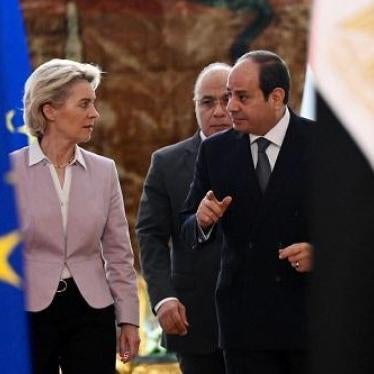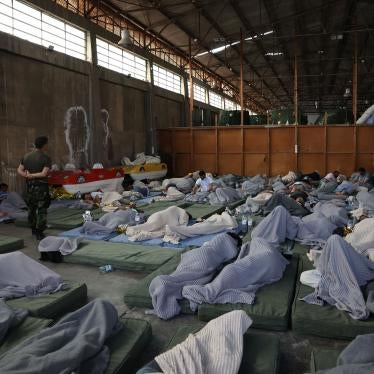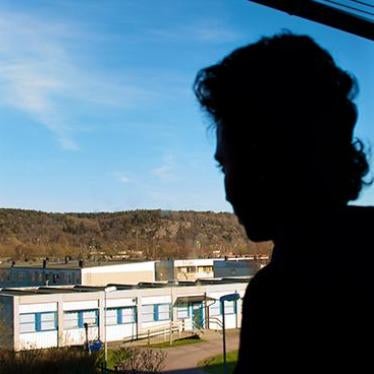A new report reveals the shocking conditions endured by unaccompanied children seeking asylum in Europe.
Wasim is a 16-year-old Kurdish boy who fled Mosul, Iraq, seeking a safe haven after Islamic State (IS) executed his father. Unfortunately for Wasim, he ended up stuck in a tiny, dirty cell in a small-town police station in northwest Greece. When I met Wasim, he had been locked up around the clock for a month, without access to interpreters, psychological care, or even games or books to occupy his mind.
Wasim is one of hundreds of children traveling alone who have been detained this year in so-called protective custody while they await a space in Greece’s overburdened shelter system. The country’s chronic failure to provide adequate care for unaccompanied children has become more acute due to increased arrivals and callous inaction by other European countries.
Researching Human Rights Watch’s
new report on unaccompanied children in Greece, I spoke with dozens of kids detained for weeks and months in unsanitary and at times degrading conditions. Children told me they lived and slept in dirty, bug-and vermin-infested cells, sometimes without mattresses. One boy from Afghanistan said he was detained in a police station in a windowless, rat-infested basement cell, where he and others had to use a toilet with no door. A boy from Pakistan told me he was scared and unable to sleep for the two months he spent in a crowded, filthy cell with adult men who were fighting and using drugs.
Greek authorities say they detain children who arrive in the country unaccompanied because the shelter system is full. But that argument rings hollow. Greece has been a gateway to the EU for years and had consistently ignored calls to increase the capacity of its shelter system and expand alternatives to detention.
Finally, Greek authorities are taking some steps to increase the shelter system capacity. But the government needs the EU’s help. It has been a year since the European Commission president, Jean-Claude Juncker,
presented the EU emergency relocation plan, intended to move 66,400 asylum seekers from Greece to other EU countries. At the time, Juncker
said the plan would “ensure that people in clear need of international protection are relocated swiftly after arriving.”
How is the plan working? As of 2 September, fewer than
3,500 people had been relocated from Greece, and only 49 of them were unaccompanied children.
The UN high commissioner for refugees, Filippo Grandi, recently emphasised the need for EU countries to
accelerate the transfer of asylum seekers out of Greece through family reunification and by fulfilling obligations under the relocation plan. The European Commission has
urged member states to step up their efforts to make places available for unaccompanied children as part of their relocation pledges. But many EU countries are still dragging their feet.
The commission should also amend the emergency relocation plan – which in its current form allows the relocation of only certain nationalities – so that asylum-seeking unaccompanied children of all nationalities are eligible for relocation, and provide more financial and technical support to process applications. And EU countries should help get unaccompanied kids out of Greece by giving them priority in relocation pledges and speeding up family reunification.
At the same time, the commission and EU countries need to help provide vulnerable children in Greece with the care they deserve. Authorities in Greece should stop detaining unaccompanied children in police stations and detention centers by expanding short-term alternatives and increasing the capacity in its long-term shelter system. The European Commission should ensure that Greece has the resources to do this.
Wasim told us about his life in the cramped and filthy cell: “It is hard when I think how many days I’ve been inside. There’s nothing to do. The only thing we do is think, talk to each other, and sleep. There’s no TV, no books, and the wall is black from the dirt.”
Like Wasim, many children whose lives have been upended are alone in Europe. They have often fled violence and conflict in Syria, Afghanistan, and Iraq. They often endured traumatic journeys, including near-drowning in the Mediterranean and violence at the hands of abusive authorities. Some left home on their own while others were tragically separated from their family in transit. The last place they should be is in a squalid cell.








